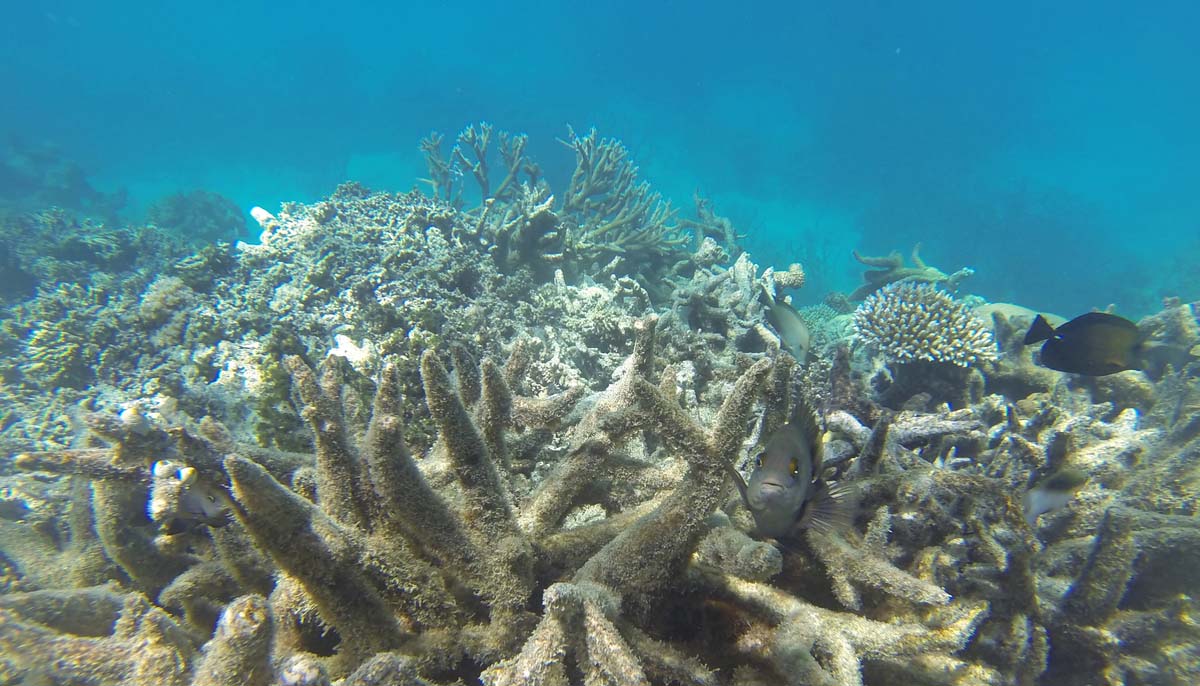Shutterstock
Amidst the global COVID-19 pandemic, there seems to be no shortage of bad news. Case in point: a US scientist who monitors the Great Barrier Reef has detected what may be the largest reef bleaching event in recorded history.
This bleaching event is on the heels of the events in 2016 and 2017 that killed half of the breathtaking Barrier Reef. This one could be a devastating hit for the reef.

“If we do not deal with climate change quickly … we are going to continue to see more severe and more frequent bleaching, and we are going to see the loss of coral reefs in much of the world,” stated Dr. C. Mark Eakin, the coordinator of NOAA’s Coral Reef Watch.
Scientists agree that global warming caused the bleaching events in the Great Barrier Reef over the last five years. Human activity is rapidly warming the planet. Greenhouse gas emissions have made the reef’s environment much more hostile.
While the 2016 and 2017 bleaching events were much deeper, they were more concentrated on a single location than this recent event. However, the 2020 bleaching event occurred over much the of the reef, bleaching a wider swath of coral without penetrating as deeply into the reef. Disaster relief organizations focus on the barrier reef as it is vital to the economy of Australia and the ecology of the Pacific Ocean.
In the past, bleaching events have tended to coincide with the presence of an El Niño-Southern Oscillation. This type of weather pattern tends to result in bizarre and powerful weather events all over the globe.
El Niño is typically characterized by unseasonably warm Pacific Ocean temperatures. The heat can illicit the bleaching events in the reef. However, this bleaching event did not accompany any such El Niño pattern, and occurred out of nowhere.
Scientists say this is much more surprising, and much scarier. It indicates that the oceans are heating up even outside of predictable El Niño events.
“The upper ocean has absorbed a tremendous amount of heat in recent years, and it has really put coral reefs around the globe much closer to their upper thermal limits.”
At present, the future of the reefs looks grim. While coral can recover from bleaching brought on by warm waters, the marine life needs time to do so. It’s essential to address manmade climate change and dropping global temperatures. If we don’t, it’s likely the heat absorbed by the oceans will cause the Great Barrier Reef to die.